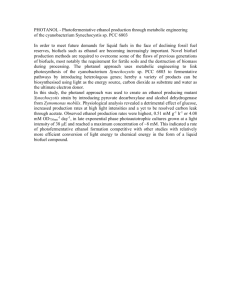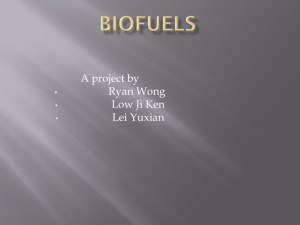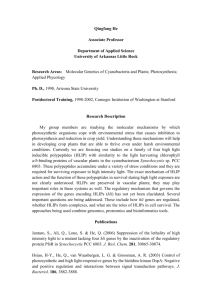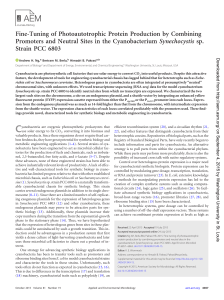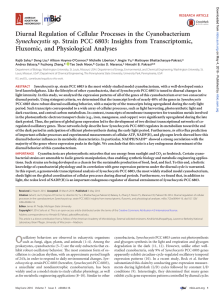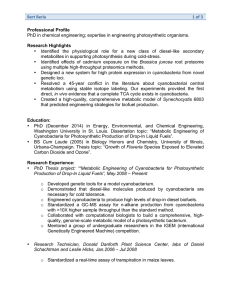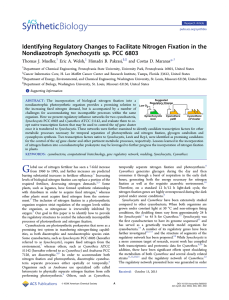Synechocystis Expanding the molecular biology toolbox
advertisement
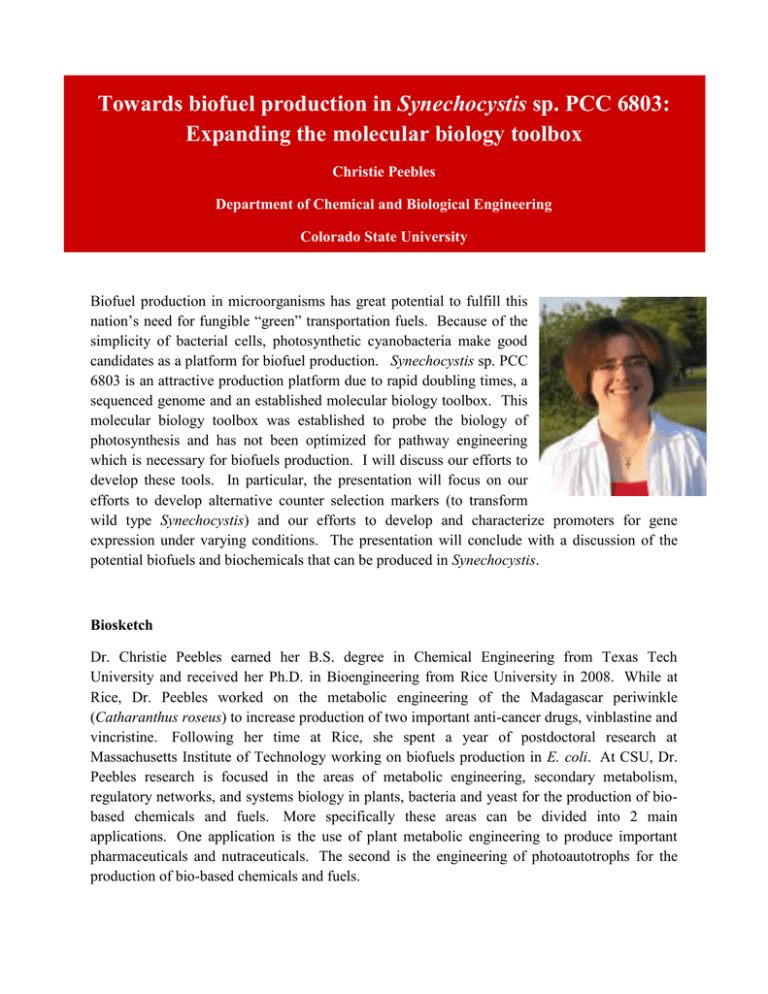
Towards biofuel production in Synechocystis sp. PCC 6803: Expanding the molecular biology toolbox Christie Peebles Department of Chemical and Biological Engineering Colorado State University Biofuel production in microorganisms has great potential to fulfill this nation’s need for fungible “green” transportation fuels. Because of the simplicity of bacterial cells, photosynthetic cyanobacteria make good candidates as a platform for biofuel production. Synechocystis sp. PCC 6803 is an attractive production platform due to rapid doubling times, a sequenced genome and an established molecular biology toolbox. This molecular biology toolbox was established to probe the biology of photosynthesis and has not been optimized for pathway engineering which is necessary for biofuels production. I will discuss our efforts to develop these tools. In particular, the presentation will focus on our efforts to develop alternative counter selection markers (to transform wild type Synechocystis) and our efforts to develop and characterize promoters for gene expression under varying conditions. The presentation will conclude with a discussion of the potential biofuels and biochemicals that can be produced in Synechocystis. Biosketch Dr. Christie Peebles earned her B.S. degree in Chemical Engineering from Texas Tech University and received her Ph.D. in Bioengineering from Rice University in 2008. While at Rice, Dr. Peebles worked on the metabolic engineering of the Madagascar periwinkle (Catharanthus roseus) to increase production of two important anti-cancer drugs, vinblastine and vincristine. Following her time at Rice, she spent a year of postdoctoral research at Massachusetts Institute of Technology working on biofuels production in E. coli. At CSU, Dr. Peebles research is focused in the areas of metabolic engineering, secondary metabolism, regulatory networks, and systems biology in plants, bacteria and yeast for the production of biobased chemicals and fuels. More specifically these areas can be divided into 2 main applications. One application is the use of plant metabolic engineering to produce important pharmaceuticals and nutraceuticals. The second is the engineering of photoautotrophs for the production of bio-based chemicals and fuels.
